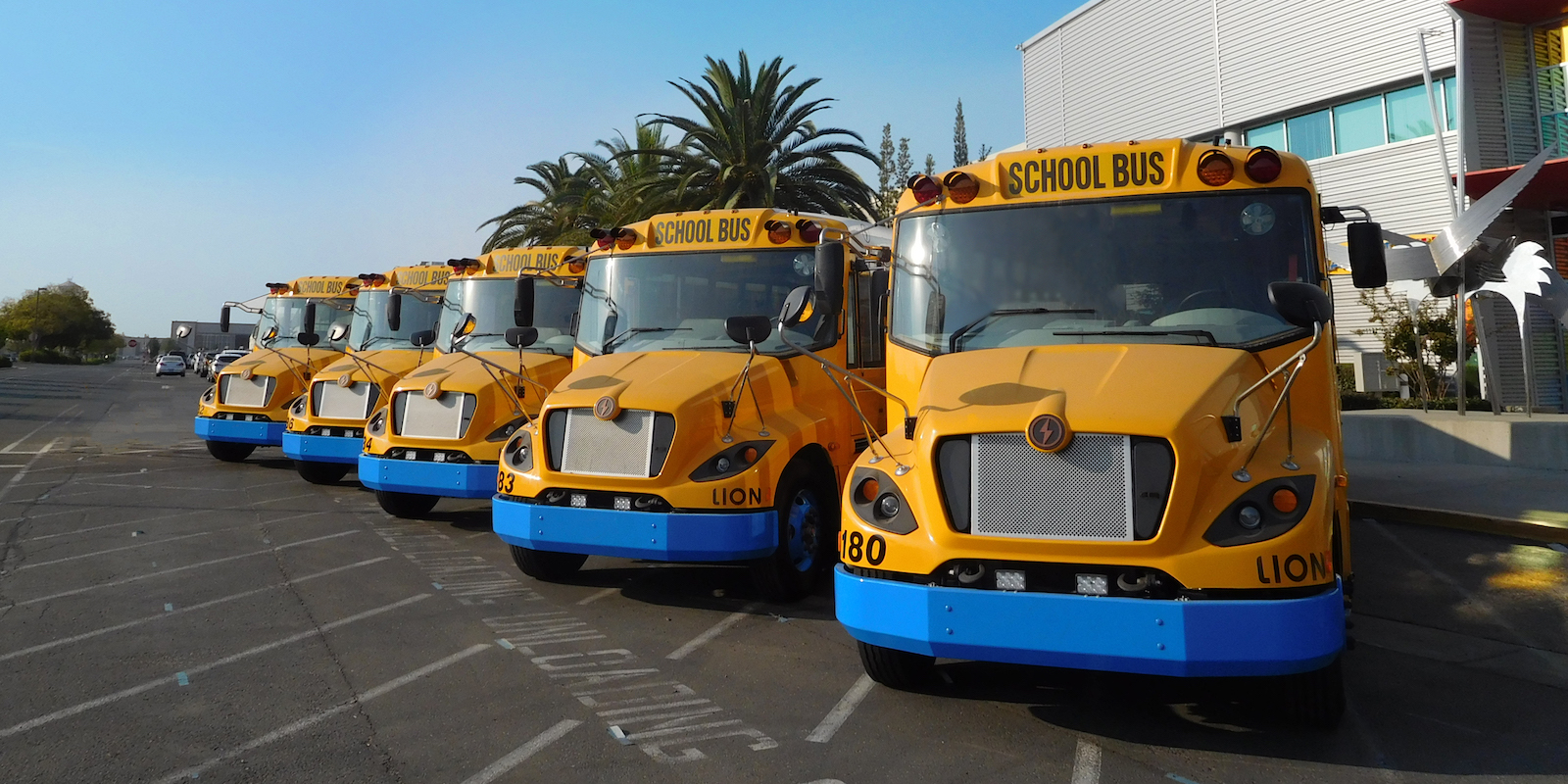[ad_1]

New Jersey recently announced a $45 million, three-year pilot program to put electric school buses to work in 18 school districts – and it’s offering up to $50,000 more for buses with the ability to power the schools.
New Jersey’s Department of Environmental Protection (DEP) opened the grant application program this month, and has held three recent webinars to help walk participants through the application process. Interestingly, the February 14th webinar emphasized the benefits of bi-directional, vehicle to building technology.
Vehicle to building, or “V2B” tech first gained national attention during the 2021 Texas ice storms, where EVs and some hybrids were able to power homes and act as lifelines for people who depend on steady power. New Jersey believes it can use similar technology at participating school districts, enabling them to draw on the energy stored in the electric school bus batteries to power school buildings during power interruptions or peak time blocks, enabling them to continue to provide services – and maybe save a little money, too.
V2B electric school bus infographic

“Your electricity bill from the utility should go down due to the decreased demand, in power from the grid because the bus battery is meeting the need,” explained Gilbert Botham, a senior economic advisor for the DEP. After dropping off the kids, the electric bus may be at 30% charge, he says (paraphrasing here), “you can use that last 30% to arbitrage down to zero and then charge overnight on cheap electricity.”
School districts can apply under New Jersey’s program for financial support to lease or buy between two and 24 new electric school buses. Hugh Morley, at NetZero Insider, summarized the grant program, explaining that applicants could receive $270,000 for a bus purchase and accompanying Level 2 charging station installation, and $290,000 for a bus and direct current fast charger (DCFC), with an additional subsidy of $30,000 if the district is in an overburdened community. The program incentive rises to $320,000 for a bus purchase and an accompanying bidirectional charging system that is capable of sending electricity back to the school building.
The deadline for school districts and vendors to submit applications to the program is May 17.
Electrek’s Take
V2B charging is a huge advantage of electrification, and the program being put forward here can really benefit the people of New Jersey – and not just from the usual environmental and public health viewpoints we normally mention here.
As extreme weather events seem to get more common (or, at least, our national awareness of them has increased), the role of public schools as shelters becomes increasingly important. Ensuring that they have reliable, carbon monoxide-free power during extended outages is an absolute must, and programs like this one will go a long way towards making that happen.
FTC: We use income earning auto affiliate links. More.
[ad_2]
Source link
